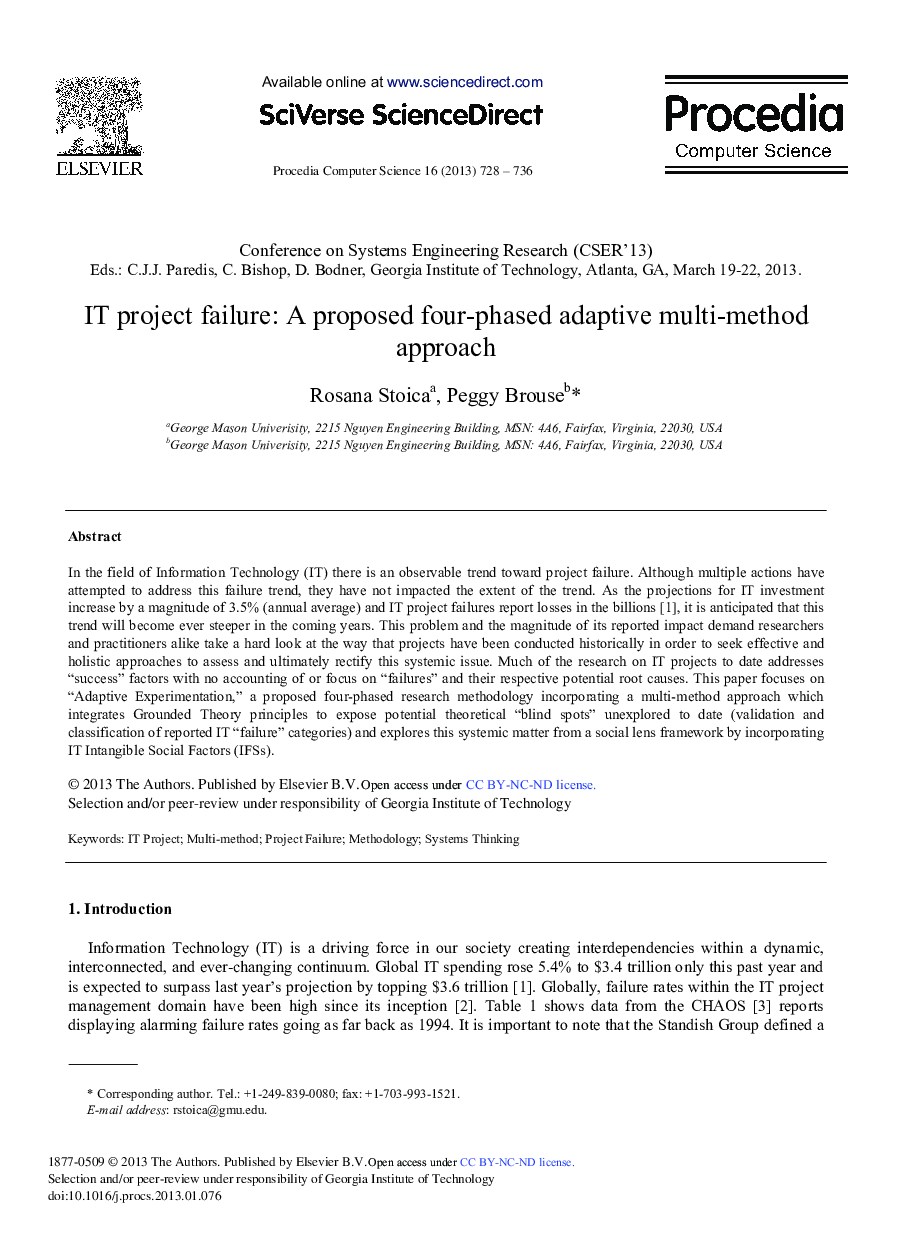| Article ID | Journal | Published Year | Pages | File Type |
|---|---|---|---|---|
| 486622 | Procedia Computer Science | 2013 | 9 Pages |
In the field of Information Technology (IT) there is an observable trend toward project failure. Although multiple actions have attempted to address this failure trend, they have not impacted the extent of the trend. As the projections for IT investment increase by a magnitude of 3.5% (annual average) and IT project failures report losses in the billions [1], it is anticipated that this trend will become ever steeper in the coming years. This problem and the magnitude of its reported impact demand researchers and practitioners alike take a hard look at the way that projects have been conducted historically in order to seek effective and holistic approaches to assess and ultimately rectify this systemic issue. Much of the research on IT projects to date addresses “success” factors with no accounting of or focus on “failures” and their respective potential root causes. This paper focuses on “Adaptive Experimentation,” a proposed four-phased research methodology incorporating a multi-method approach which integrates Grounded Theory principles to expose potential theoretical “blind spots” unexplored to date (validation and classification of reported IT “failure” categories) and explores this systemic matter from a social lens framework by incorporating IT Intangible Social Factors (IFSs).
